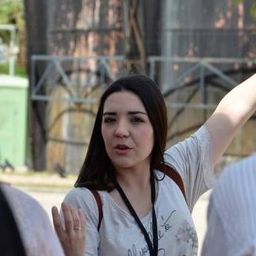Resilience and sustainability of industrial heritage in COVID-19 and post-COVID-19 era. What is next? The case study of Technopolis City of Athens, former Gasworks of Athens
Mon statut pour la session
Quoi:
Paper
Partie de:
Quand:
12:00 PM, Mardi 30 Août 2022
(20 minutes)
Où:
UQAM, pavillon J.-A. De Sève (DS)
- DS-1520
The old Gasworks of Athens was established in 1857 and provided energy for public lighting, industries and households in Athens. It was in full function in 1984 and partly until the 1990’s.
In the early 1980’s, the Municipality of Athens and the Ministry of Culture decided to declare the whole place a historic monument of industrial heritage as a part of their greater plan including other important monuments as well. They also proposed a detailed scheme of action for the old Gasworks e.g. demolition of buildings, restoration of the older ones, conservation of mechanical equipment. Part of the plan was also for the old Gasworks to adopt a sustainable cultural profile by creating open spaces and venues for cultural events, a proposal for an industrial museum and a centre for technology to be established as a part of the complex.
Today, the old gasworks is called Technopolis of the City of Athens and was inaugurated in 1999. Its mission is to help promote development, heritage, entrepreneurship, education, public awareness and inclusion. Technopolis S.A. is also the location of the Industrial Gas Museum of Athens (since 2013) and Innovathens― hub of innovation and entrepreneurship (since 2016) and operates as a unique space, focused on being inclusive of different audiences by organizing various cultural events, creating opportunities for the knowledge exchange, promoting entrepreneurship, presenting and interpreting industrial heritage while promoting the educational role of a museum, and hosting an impressive number of 900,000 visitors per year.
All these years, Technopolis has followed a developing model of management that most European and non- European countries have followed concerning the sustainable reuse of industrial places as cultural centers. However, the Covid-19 situation, has affected the cultural sector all over the world including Technopolis S.A indicating the need of re-examining the models of management that we are using. Technopolis, since March 2020, is challenged once again to prove its ability to adjust, its creativity and to show how the extended use of digital means can help its sustainability and resilience.
This paper indicates the management models that have been implemented to an industrial heritage site, the Technopolis S.A., throughout times and the imperative need of “change management” as a response to the COVID-19 crisis in order to keep the site alive. This analysis will provide the reader not only with the information on Technopolis as a company but also with a general insight how it functions as well as the role of the Industrial Gas Museum and Innovathens. It will also explain the measures taken in order for Technopolis to remain active during the pandemic, how creativity, collaborations and a spirit of resilience succeeded in keeping the site alive and what is yet to be done.


